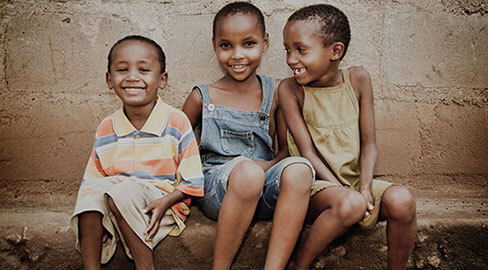What is the relationship between Jaan, Maal and Waqt?

Image Source: Unsplash
Jaan, Maal and Waqt are the three stages of human life. Jaan is the period between birth and adolescence, when a child is just beginning to understand the world around him. The second phase of life is called Maal, which means ‘work’ in Hindi. This phase lasts from adolescence until old age, when a person focuses on work and family as their primary responsibilities in life. The third phase is called Waqt, or the time between death and rebirth. It lasts for just a moment but is extremely important because it allows us to get ready for our next life. Let’s look at these stages of life in more detail…
Jaan: The period between birth and adolescence
Jaan is a very important period in all human lives. It is the time when, as children, we are just beginning to understand the world around us. In this period we develop our knowledge and skills, learn about our family and culture, and begin to see the bigger picture of the world and how everything is connected. During this period, we also begin to explore the concept of death and how we change from life to death. We may explore these ideas in a variety of ways, for example, by burying vegetables in the garden and observing how they decay, or by observing a butterfly emerging from a cocoon. During this period of life, a child’s relationship with death is very different to an adult’s. As children we have no concept of death as finality, so when we are faced with death, it can be shocking. As we are growing up, we must explore death as a concept, and come to terms with the fact that one day we will die. At the same time, we must also come to terms with the many other challenges of childhood.
Maal: The period from adolescence to old age
As we grow up, our focus shifts to the responsibilities of adulthood. In this period, we should be earning money, managing our families, and providing for the next generation. In India, the period of adolescence is called ‘Brahmacharya’, which means ‘a life of learning’. Later in life, we become ‘Grihasth’, or ‘householders’, when we are responsible for family and work. During the period of Brahmacharya, we must learn more about death and prepare for our next life. We can do this by reflecting on the roles we play in our families and communities, and the effects that our actions have on the world around us. We can also learn about the impermanence of the world by seeing how our bodies change as we grow older, and how we must prepare for our death by leaving a legacy for future generations. During the period of Grihasth, we must ensure that we are ready for death and for the next life. We must also ensure that our families are provided for, and that our communities are stable.
Waqt: The period between death and rebirth
This is the shortest period of life, lasting just one moment between our death and rebirth. It is the time when we have an opportunity to review our lives, leave behind any unfinished business, and prepare for the next life. For example, we can make amends for the wrongs we have done, or we can forgive others for any pain they have caused us. In this period, we should also do our best to create a positive vision for the next life. We can do this by reflecting on the best parts of our lives, and thinking about how they could be improved in the next life. During this period, we can also review our relationships. We can be grateful to those who have helped us, and apologise to those we have wronged. We can also forgive those who have hurt us, in the knowledge that they may not even be aware of their actions, or the pain they caused.
Conclusion
Jaan, Maal and Waqt are the three stages of human life. Jaan is the period between birth and adolescence, when a child is just beginning to understand the world around him. It is followed by the period of Maal, when a person focuses on work and family as their primary responsibilities in life. The third phase is called Waqt, or the time between death and rebirth. It lasts for just a moment but is extremely important because it allows us to get ready for our next life. These three stages are interdependent and form a cycle that goes on endlessly.
During each of these stages, we must make the best use of the opportunities they offer. During Jaan, we must learn about death and prepare for the next life. We can do this by exploring death in a variety of ways, such as by burying vegetables in the garden and observing how they decay, or by watching a butterfly emerging from a cocoon. During Maal, we must learn more about death and how we are changing from life to death. We can do this by reflecting on the roles we play in our families and communities, and the effects that our actions have on the world around us. During Waqt, we must reflect on our lives, leave behind any unfinished business, and prepare for the next life. We can do this by being grateful to those who have helped us, apologising to those we have wronged, and forgiving those who have hurt us.


